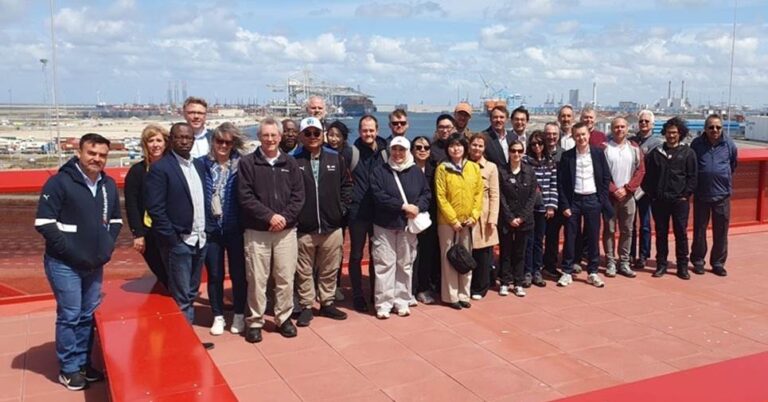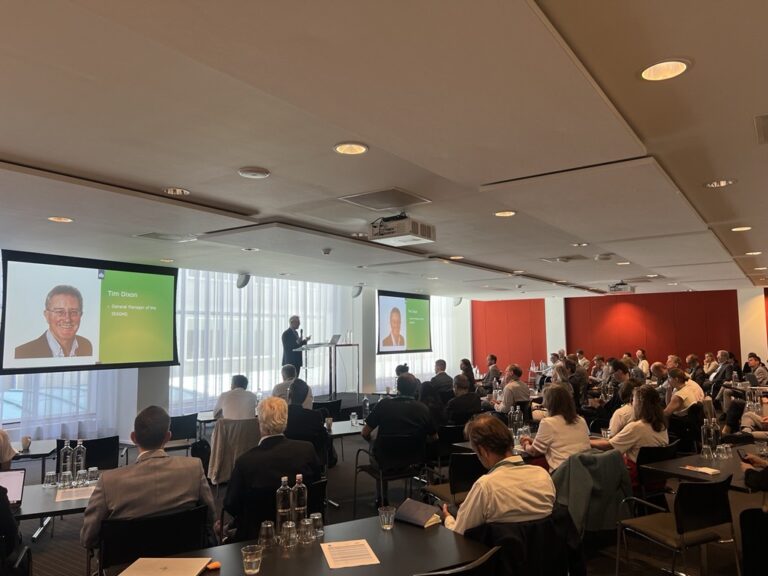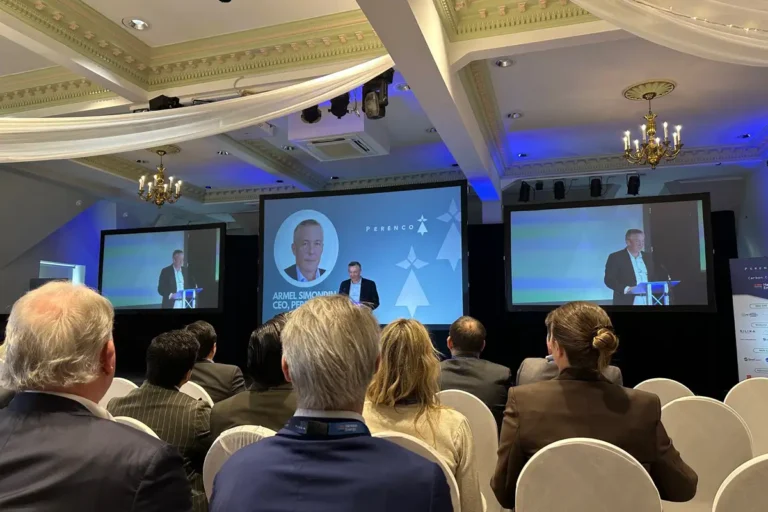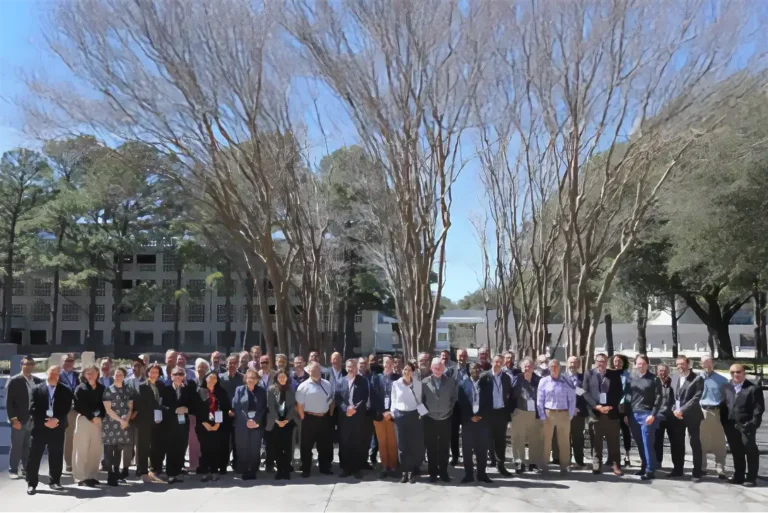
Council for Geoscience (CGS) 2024 Carbon Capture Utilization and Storage Workshop, South Africa
1 February 2024

In the face of global climate change, South Africa stands at a critical juncture. With an economy heavily reliant on coal, the country is exploring sustainable pathways to reduce carbon emissions. One promising avenue for the country is CCS technology. Further, the potential conversion of coal to hydrogen presents an intriguing opportunity for South Africa to transition to a low-carbon economy using clean coal technologies.
Introduction
South Africa’s commitment to CCS is driven by its significant coal reserves and the need to balance economic growth with environmental sustainability. The Council for Geoscience (CGS) has been actively involved in researching and developing CCS technologies in the country and is working in partnership with the World Bank to implement CCUS in Mpumalanga Province. This is part of the South African government’s intent to put measures to mitigate carbon emissions, in tandem with the country’s Just Transition, Energy Security and Economic Growth. The Mpumalanga Province has been earmarked as a target area for CO2 storage owing to its ideal geology for CO2 storage and proximity to major point source emitters of CO2.
The CGS Workshop
To continue its commitment to advancing CCS in South Africa, CGS hosted a series of hybrid CCUS technical workshops and seminars across six provinces in South Africa from 15 to 29 January 2024.
IEAGHG joined the workshop virtually to talk on industrial decarbonization with a focus on the production of clean steel at the workshop on 29 January in Polokwane, Limpopo. This event convened experts, policymakers, students, and industry leaders to discuss the status and future of decarbonizing energy and industrial complexes in South Africa via CCUS.
The representative of the Executive Mayor of the Polokwane Local Municipality provided the welcoming address. Mr. Mosa Mabuza, CEO of the CGS, then set the tone for a day dedicated to addressing the decarbonization of South Africa’s heavily coal-reliant industry via CCUS.
Ms. Phumudzo Thivhafuni (Limpopo Economic Development, Environment & Tourism), discussed the Limpopo Provincial Climate Change Response Strategy. Mr. Lehlogonolo Masoga (Musina Makhado Special Economic Zone), followed with a talk on the MMSEZ’s Power Generation Cluster. Mr. Ngqondi Nxokwana (CGS) delved into the geological characterization of the Leandra Pilot Project and its environmental impact assessment.
Dr. Taufeeq Dhansay facilitated a compelling panel discussion on the role of clean coal technologies in South Africa’s Just Energy Transition Programme, providing a multifaceted view on integrating clean coal technologies into the energy transition, the panel session was followed by a second interactive session.
Post-lunch, the third session, themed “Balancing Energy Needs: Policies, Local Realities, and Environmental Accountability in South Africa,” was facilitated by Mr. Willem Meintjes. This session brought together a diverse group of experts and policymakers, focusing on various aspects of energy production, policy frameworks, and environmental impact assessments. It included presentations on clean steel, coal to hydrogen technologies, GHG inventory & systems, and perspectives on CCUS projects in Norway.
Ms. Eva Halland (CarbonGeo Consulting) offered an international insight on “Perspectives of CCUS Projects in Norway.” Her analysis provided insight into how Norway, a leader in CCUS technology, manages entire full chain CCS projects. Abdul’Aziz A. Aliyu (IEAGHG), presented on ‘Clean Steel,’ providing insights into the costs and the Global Warming Potential impact of a broad spectrum of clean steel technologies. Dr. Cosmas Chiteme (Department of Science & Innovation), followed with a paper titled “Coal to Hydrogen related technologies in South Africa: A policy perspective.”
Ms. Sindisiwe Mashele (DFFE) discussed “GHG Inventory & Systems”, highlighting the challenges and opportunities in managing GHG emissions in South Africa. Mr. Sibongiseni Hlatshwayo (CGS) provided a summary of key takeaways, emphasizing the multifaceted nature of balancing energy needs with environmental accountability.
Finally, the Polokwane Local Municipality (TBC) extended a vote of thanks, acknowledging the contributions of all speakers and participants.
Takeaway
The workshop underscored a pivotal aspect of South Africa’s energy strategy: while the nation’s economy remains heavily reliant on coal, there is no immediate plan to cease its utilization. Instead, the focus is shifting towards advancing research, development, and projects centered around clean coal technologies. This approach reflects a pragmatic balance between leveraging the country’s abundant coal resources and fulfilling its commitments to the Paris Agreement.
The commitment to clean coal technologies includes the development of CCS projects, the improvement of coal power plant efficiencies, and the advancement of coal gasification techniques. These endeavours are seen not only as a means to reduce emissions but also as a way to sustain economic growth and employment in regions dependent on the coal industry. Investment in clean coal aligns with South Africa’s broader energy strategy, which includes a diverse mix of renewable energy sources. However, coal, due to its availability and existing infrastructure, is expected to remain a central component of this strategy in the near to medium term.
Other articles you might be interested in
Get the latest CCS news and insights
Get essential news and updates from the CCS sector and the IEAGHG by email.
Can’t find what you are looking for?
Whatever you would like to know, our dedicated team of experts is here to help you. Just drop us an email and we will get back to you as soon as we can.
Contact Us NowOther articles you might be interested in
Get the latest CCS news and insights
Get essential news and updates from the CCS sector and the IEAGHG by email.
Can't find what you are looking for?
Whatever you would like to know, our dedicated team of experts is here to help you. Just drop us an email and we will get back to you as soon as we can.
Contact Us Now









